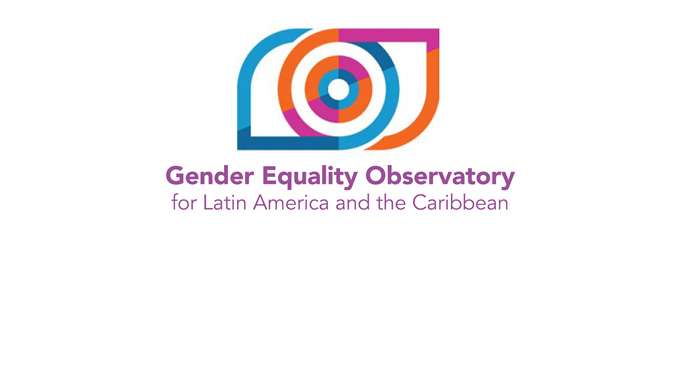In 2018, At Least 3,529 Women Were Victims of Femicide in 25 Latin American and Caribbean Countries: ECLAC
Work area(s)
Topic(s)
The measurement of this scourge, and its regional comparability, is fundamental for implementing policies for prevention, reparation and sanction, the Commission sustains in the context of the International Day for the Elimination of Violence against Women.

At least 3,529 women were killed for gender-based reasons in 25 Latin American and Caribbean countries in 2018, according to the official data compiled annually by the Gender Equality Observatory for Latin America and the Caribbean (GEO) of the Economic Commission for Latin America and the Caribbean (ECLAC).
Four of the five highest rates of femicide, or feminicide, in Latin America occur in northern Central American countries (El Salvador, Honduras and Guatemala) and in the Dominican Republic. Bolivia is the remaining country, with a rate of 2.3 femicides for every 100,000 women in 2018, which is the third-highest rate in Latin America and the highest in South America. In contrast, Peru has a rate of 0.8 femicides for every 100,000 women, which marks the lowest figure in the region last year.
In the Caribbean, the prevalence of femicide exceeds 4 deaths for every 100,000 women in countries such as Guyana and Saint Lucia, according to information from 2017. In 2018, Trinidad and Tobago and Barbados topped the list, with a rate of 3.4 deaths per 100,000 women. This figure could be even more troubling in the case of Barbados, considering that this country only collects figures on “intimate femicides,” meaning those committed by the victims’ current or former intimate partners.
“The gender-based killing of women is the extreme on a continuum of violence that women in the region experience. The figures compiled by ECLAC, in an effort to make the seriousness of this phenomenon more visible, show the depth of the patriarchal, discriminatory and violent cultural patterns that are present in the region,” Alicia Bárcena, the regional organization’s Executive Secretary, states in the context of the International Day for the Elimination of Violence against Women, which kicks off 16 days of activism leading up to Human Rights Day on December 10.
“Millions of women in the region have taken to the streets to assert and demand something so basic which is violated: the right to live violence-free lives,” the senior United Nations official said.
In its latest publication on measuring femicide, the GEO of ECLAC points to the challenge of comparing the phenomenon on a regional level. In the majority of Caribbean countries (where the offense of femicide/feminicide has not been codified in criminal codes), the only figures collected correspond to women’s deaths at the hands of their partners or former partners. In Latin America, countries differ in the way they legally define the phenomenon, ranging from a broad notion of femicide to criminal offenses that limit it to marriage or co-habitation. In addition, different approaches are used to produce records on this crime.
Measuring femicide in the region’s countries is essential for designing, implementing and evaluating public policies aimed at protecting victims of gender-based violence, specifically in order to prevent femicide, provide reparation for dependent collateral victims, and punish the perpetrators, ECLAC indicates.
To tackle these challenges, ECLAC is promoting the development of a Femicide Registration System in Latin American and Caribbean countries, which would serve as a tool for improving the quality of national information with a view to deepening the analysis of femicide and strengthening regional comparability.
Furthermore, the United Nations and the European Union are implementing the Spotlight Initiative to eliminate violence against women and girls, which has identified the eradication of femicide as its focus for the region. ECLAC, through the GEO, is a strategic partner in this initiative, since the strengthening of femicide registration systems is one of the project’s objectives.
Related content

ECLAC: At Least 2,795 Women Were Victims of Femicide in 23 Countries of Latin America and the Caribbean in 2017
Alicia Bárcena, Executive Secretary of the United Nations regional organization, called on the region’s countries to give priority to public policies aimed at preventing, sanctioning and eradicating…
Related link(s)
Country(ies)
- Latin America and the Caribbean
Contact
Public Information Unit
- prensa@cepal.org
- (56 2) 2210 2040
